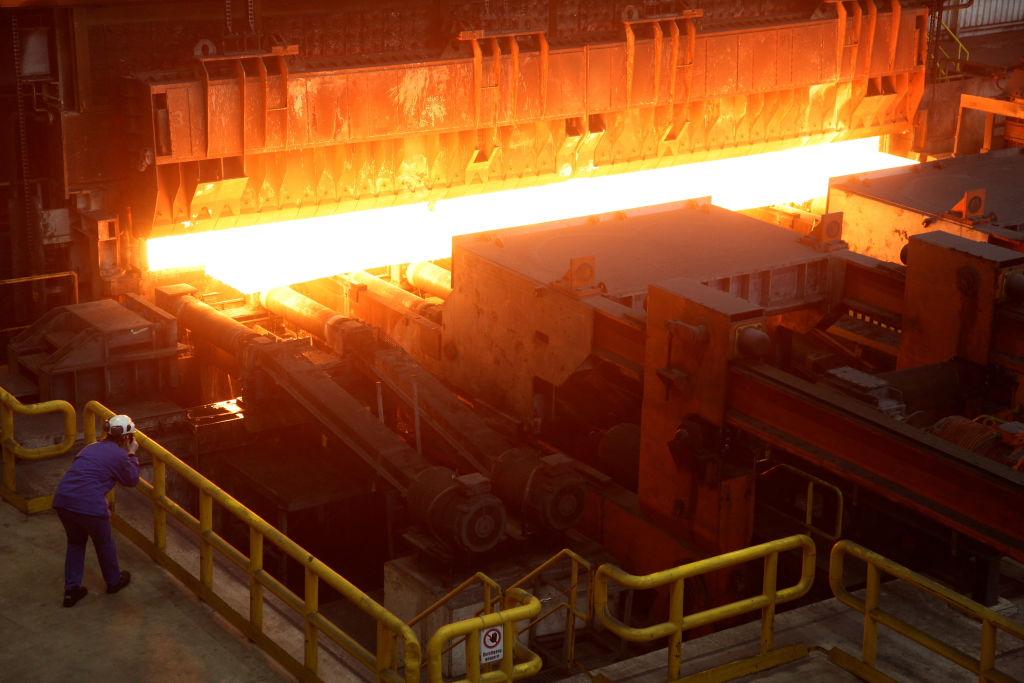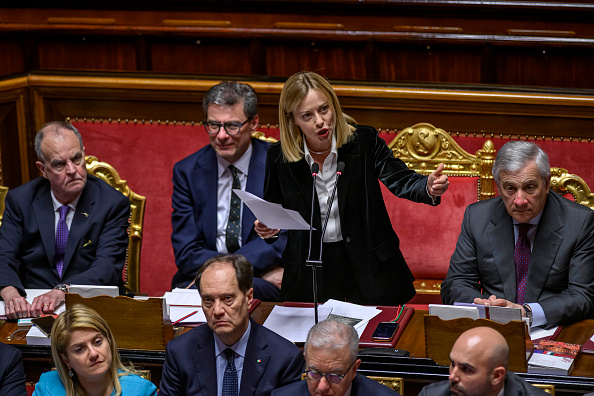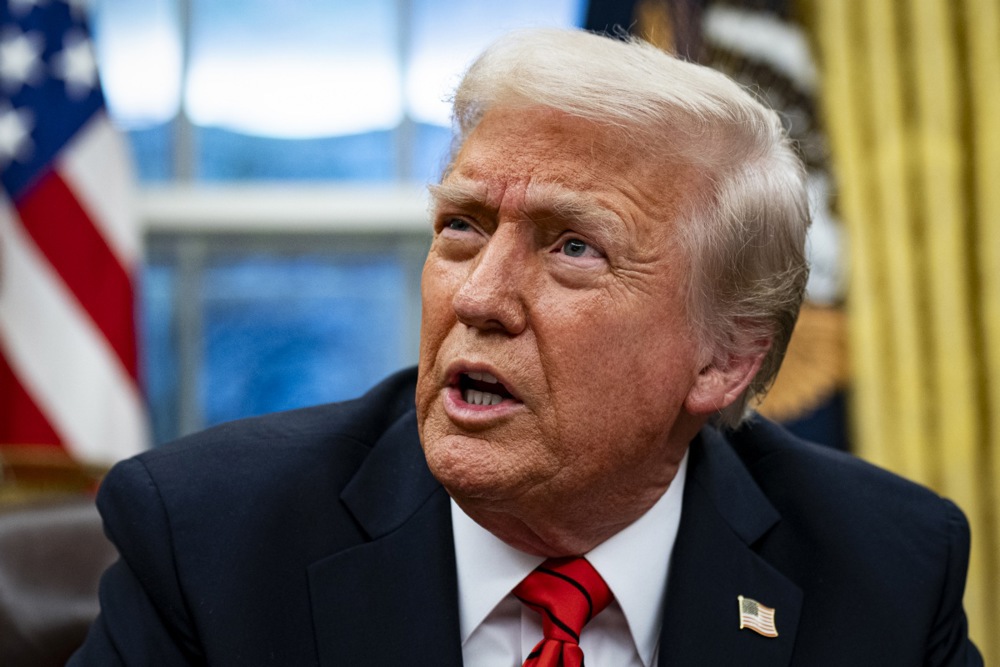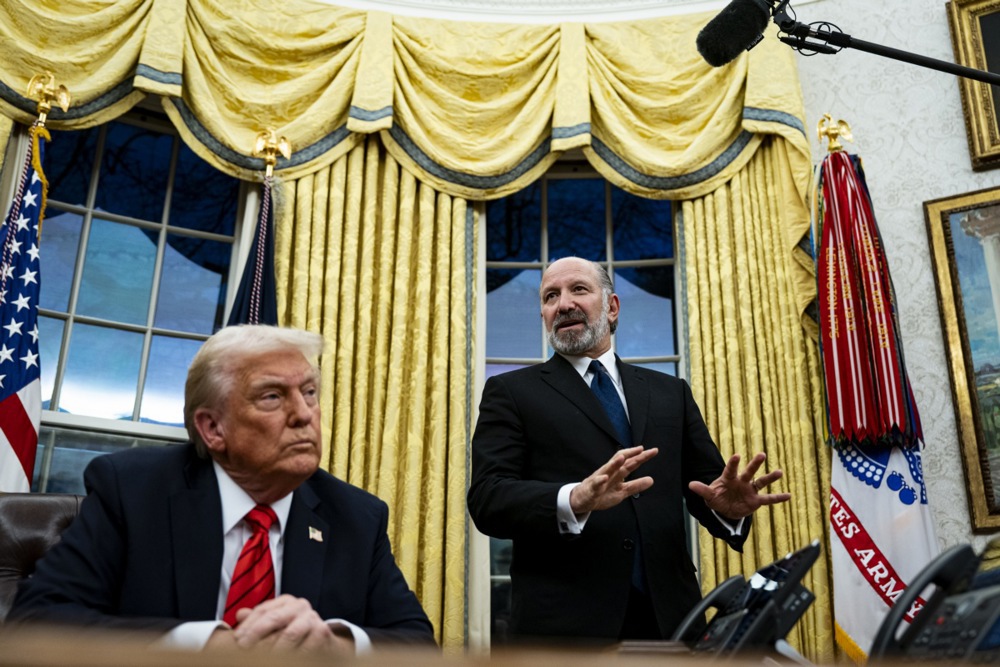Global markets have been left reeling ahead of a new wave of “reciprocal” tariffs set to be announced next week by US President Donald Trump.
The decision to impose more aggressive tariffs, which have sent stocks tumbling and oil prices fluctuating, comes after the Trump administration said existing practices by trading partners put US businesses at a disadvantage.
Trump has argued that a “reciprocal” trade policy would help reduce the US trade deficit, strengthen the economy and enhance national security.
Reciprocal tariffs are import taxes imposed by one country in response to trade barriers set by another.
These tariffs are set to be imposed on April 2, which Trump calls “Liberation Day”.
In addition to offsetting tariffs, other factors deemed to put American manufacturers at a disadvantage would be taken into account, such as “unfair” subsidies and the effects of regulations protecting personal data, as well as value-added taxes, manipulated exchange rates, and lax intellectual property protections.
The fines imposed under the EU Digital Market Act (DMA) is one example of a “non-tariff trade barrier” cited by Trump.
With April 2 approaching, uncertainty has gripped investors.
The imposition of reciprocal tariffs in such a unilateral manner is unprecedented in US trade policy.
“Historically, tariff negotiations have been multilateral, under frameworks like GATT and the WTO, which the US helped shape. Imposing them unilaterally is legally and practically challenging,” Everett Eissenstat, who was a trade official during Trump’s first term, told Brussels Signal on March 27.
The new measures follow a 25 per cent tariff on imported cars and on “countries importing Venezuelan oil” announced on March 26.
Experts said that although the tariffs on cars were tougher than expected, especially as there had been no adjustments made for its neighbours like Mexico and Canada, the April 2 tariffs were likely to be tougher still.
It remains unclear how far Trump intends to alter the established rules governing global trade.
From what was known thus far, Liberation Day tariffs would concern goods from Canada and Mexico, agricultural goods,”secondary tariffs” on oil and gas from Venezuela, cars and so-called reciprocal tariffs.
Such tariffs tend to lead to an escalation, possibly disrupting global supply chains and deepening economic uncertainty as their repercussions ripple across wider markets.
Eissenstat cautioned that the unilateral redefinition of tariffs not only upended traditional trade norms but also set the stage for legal challenges and prolonged market volatility.
Markets have reacted sharply to the looming deadline. The US dollar, which many expected to strengthen under Trump’s “America first” policies, has instead tumbled, experiencing its worst start to a year since the 2008 financial crash, Reuters reported.
The European Central Bank (ECB) has preemptively slashed interest rates, as price pressures seem to be easing on more modest wage hikes and continued economic stagnation, as Reuters reported.
The ECB’s primary objective is to maintain an inflation rate of 2 per cent, and as the current rate is above that target, April 2 might bring “good news on inflation”. There is indeed one theoretical silver lining. ECB vice-president Luis de Guindos told Reuters that economic uncertainty could trigger disinflation and help the central bank meet its inflation target (by lowering the rate).
Traders have now priced in an 80 per cent chance of another ECB rate cut in April.
Moreover, major stock indices have swung wildly, with the S&P 500 shedding nearly 5 per cent in recent weeks.
Energy markets were equally unsettled. The new 25 per cent tariff on Venezuelan oil has threatened to force US Gulf Coast refineries — dependent on heavy crude — to seek alternatives.
Canadian oil, a suitable replacement, has been in high demand, pushing prices up.
Canada itself faces growing uncertainty, as the tariffs on its auto sector threatens a major pillar of its economy, potentially impacting thousands of jobs and billions in investment.
Beyond North America, trade partners were weighing their responses.
Financial markets have become locked in a precarious dance with Washington’s evolving trade policy. Investors scrambled to assess the full impact of Trump’s tariffs, as some nations chose diplomacy while others threatened retaliation, explained Eissenstat.
Trump, in turn, has warned of even steeper duties if foreign governments pushed back.





